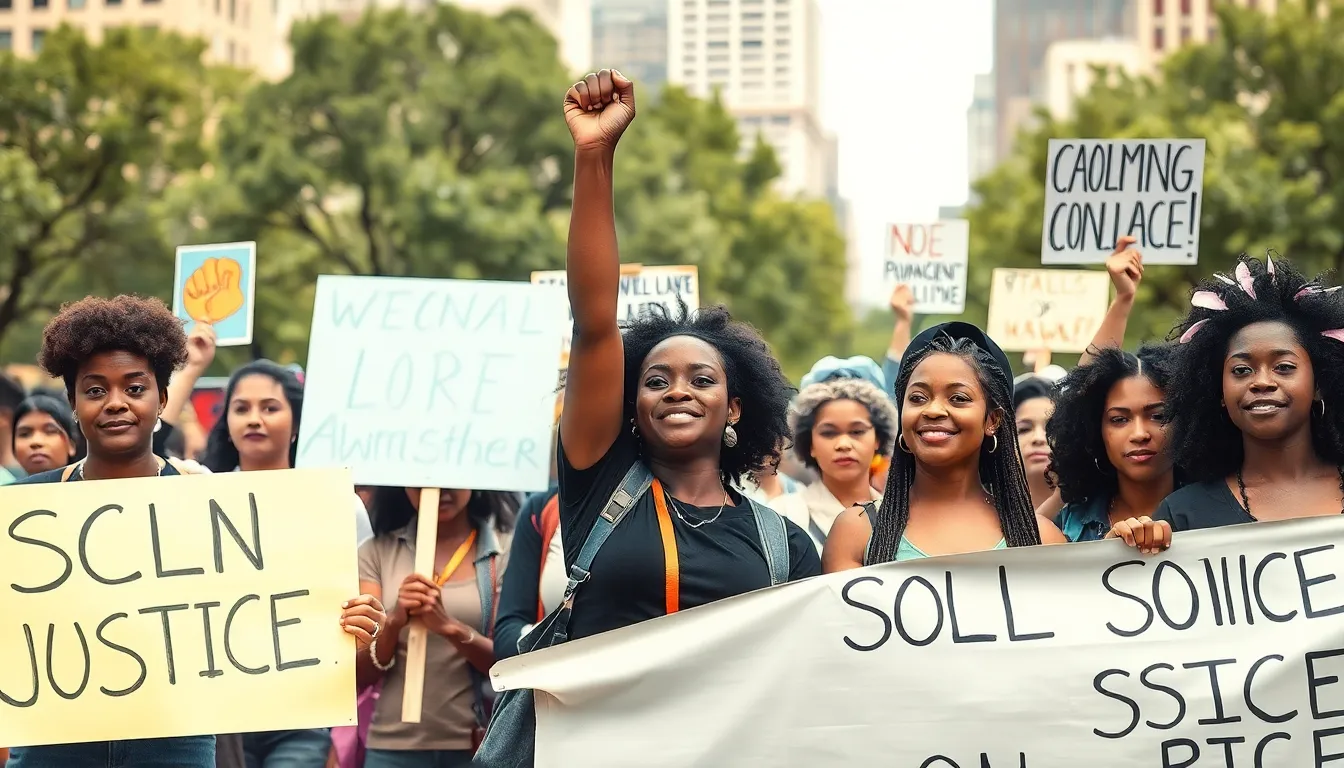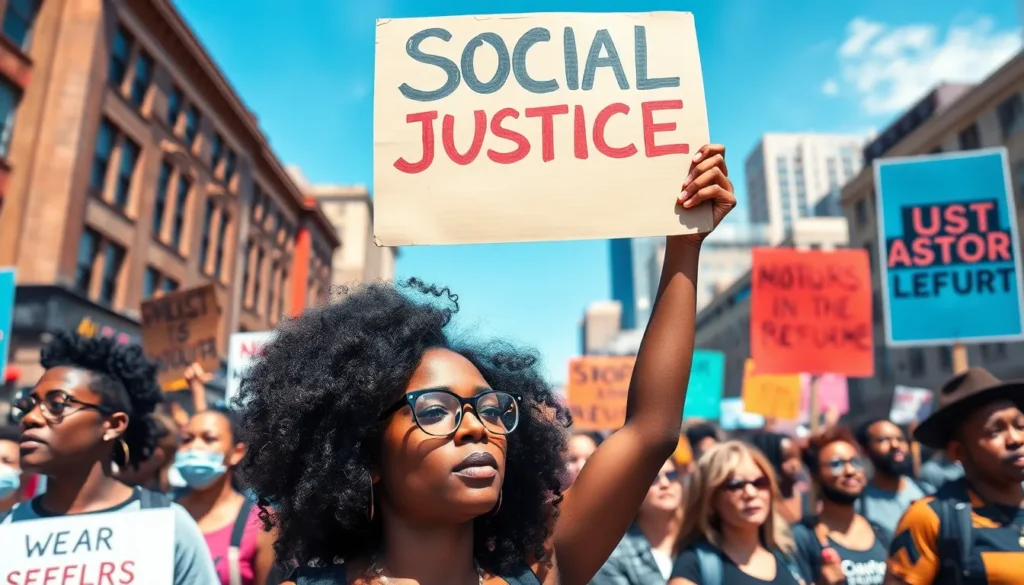In a world where political developments can change faster than a cat meme goes viral, staying informed has never been more crucial. From shifting alliances to unexpected election outcomes, these events shape not just governments but everyday lives. Whether you’re a political junkie or just trying to keep up with the latest buzz at brunch, understanding these dynamics is key.
Table of Contents
ToggleCurrent Political Developments
Staying informed about political developments remains essential. Rapid changes influence government decisions and everyday life.
Overview of Key Events
Recent events shape the political landscape. The passing of significant legislation on climate change passed through Congress, reflecting a united push toward sustainable policies. Internationally, the rise of new trade agreements highlights shifting dynamics as nations seek economic collaboration. Activism surrounding social justice has gained momentum, influencing public opinion and political agendas. Major protests have drawn attention to pressing issues like police reform and healthcare access. As these events unfold, they reshape political narratives and voter priorities.
Significant Changes in Leadership
Leadership transitions mark important moments in politics. A recent gubernatorial election resulted in a surprising upset, reflecting shifting voter sentiments in a traditionally red state. The appointment of a new Supreme Court justice introduces potential shifts in the court’s ideological balance, with implications for upcoming rulings. Additionally, several key cabinet positions filled with first-time appointees signal a strategic pivot in policy direction. These leadership changes demonstrate a response to evolving public demands and legislative priorities, highlighting the importance of adaptability in governance.
Major Political Issues

Current political developments emphasize critical issues influencing both governance and society. Economic policies and social justice movements are particularly noteworthy.
Economic Policies and Impacts
New climate legislation brings significant changes to economic frameworks. Investment in green technology is expected to create jobs and stimulate sustainability efforts. Trade agreements prioritize collaboration to boost economic resilience. These agreements aim to facilitate smoother exchanges while addressing international tariffs. Additionally, shifts in taxation policies can directly impact resources allocated for public services. Rising discussions surrounding universal basic income reflect evolving perceptions of economic necessity. Each of these policies represents a diverse approach to navigating contemporary economic challenges.
Social Justice Movements
Grassroots activism has gained traction, providing a powerful voice for marginalized communities. Major protests highlight issues such as police reform and healthcare access. These movements seek to influence public policy and elevate social equity. A growing number of public figures are becoming advocates, showcasing solidarity with various causes. Representation in government also reflects a broader commitment to diversity. Activist organizations collaborate to amplify their messages, ensuring sustained engagement. Each of these efforts fosters a more equitable society and influences political agendas nationally.
International Political Developments
International political dynamics reflect a rapidly changing landscape that influences both global and domestic policies. Understanding these developments is crucial for grasping the interconnectedness of world politics.
Global Reactions to Domestic Policies
Countries often respond strongly to domestic policies in others. For instance, recent climate legislation in major economies garnered both praise and criticism, shaping diplomatic relations. Supporters emphasize the importance of cooperative efforts to combat climate change, while detractors raise concerns about economic impacts. Trade partners assess new tariffs and subsidies, weighing their potential effects on international market stability. Observers note how significant protests within a country can prompt international scrutiny and support from foreign entities. The rise of social justice movements has sparked conversations globally, influencing public opinion and government responses across borders.
International Treaties and Agreements
International treaties and agreements play a crucial role in shaping economic and environmental policies worldwide. Recent trade agreements among countries focus on reducing barriers and fostering collaboration. Key elements include provisions for sustainable practices and equitable trade terms. Climate accords established between multiple nations signal a commitment to joint efforts in addressing global warming. Additionally, partnerships targeting public health reflect a collective response to ongoing challenges, such as pandemics. The evolution of these agreements showcases the necessity for countries to adapt and cooperate in navigating complex political landscapes, ultimately driving progress on shared goals.
Future Trends in Politics
Political landscapes continually evolve, marked by shifting priorities and emerging influences. Individuals keen on politics can expect notable transformations as upcoming elections and movements shape policies.
Predictions for Upcoming Elections
Voter engagement is set to rise in the upcoming elections, influenced by heightened awareness of key political issues. Polls suggest that economic policies, particularly those addressing inflation, will dominate discussions. Candidates emphasizing climate action may resonate with younger voters, reflecting growing environmental concerns. Expect surprises in traditionally aligned states as shifting demographics challenge existing political norms. New platforms advocating for universal basic income might gain traction, addressing contemporary economic realities. Historical patterns indicate that incumbents may find it difficult to maintain support amid these trends, resulting in competitive races across various levels.
Emerging Political Movements
Grassroots organizations are becoming increasingly influential, uniting communities around social justice and economic reform. Activism promoting LGBTQ+ rights, racial equality, and climate justice is redefining traditional political agendas. Advocates are employing digital tools to galvanize support, reaching broader audiences quickly. Calls for healthcare reform are also prominent, reflecting widespread public discontent with current systems. Collaborative efforts among diverse groups are fostering deeper connections, aiming to enhance representation and inclusivity in politics. As these movements gain momentum, expect established political entities to adapt to remain relevant.
Political landscapes are evolving rapidly and staying informed is crucial for understanding these changes. The rise of grassroots activism and shifting economic policies highlight a growing demand for inclusivity and representation. As new leadership emerges and significant legislation unfolds, the impact on both domestic and international levels cannot be underestimated.
Future trends suggest that voter engagement will increase, particularly among younger demographics concerned with climate action and social justice. This dynamic environment calls for adaptability from political entities as they respond to the voices of their constituents. The ongoing dialogue surrounding these developments will shape the trajectory of governance and public policy in the years to come.





